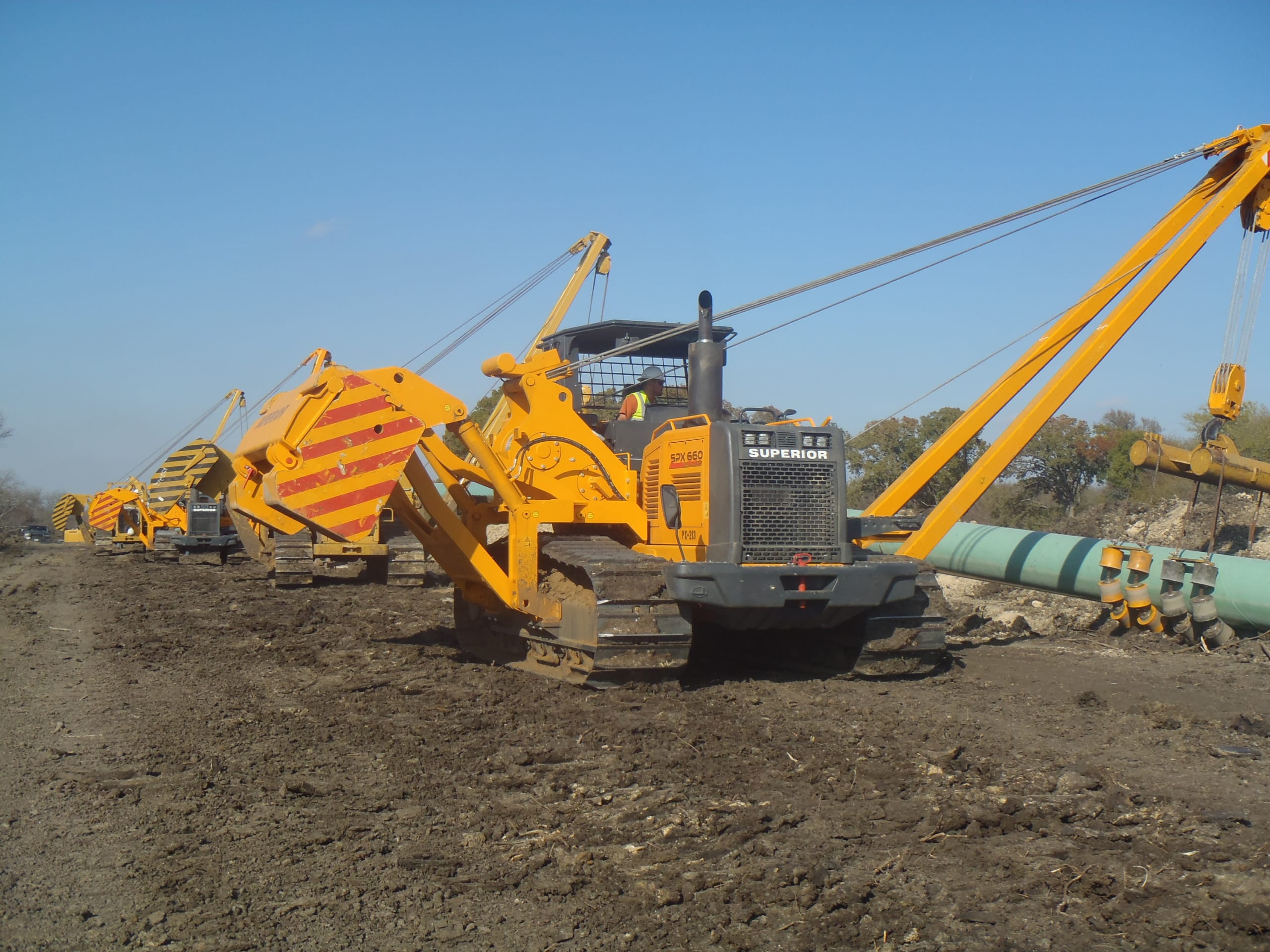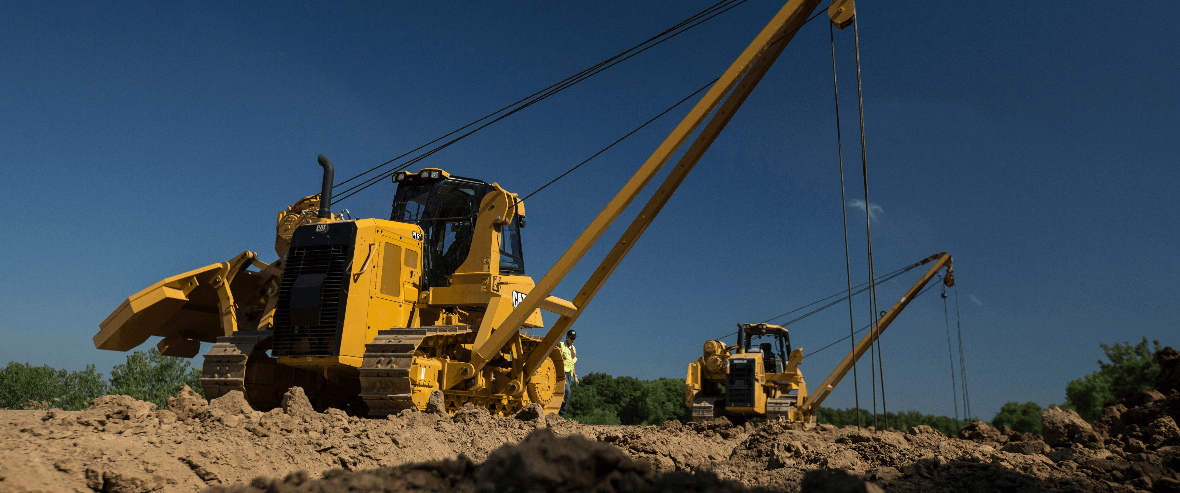A Comprehensive Overview to the Various Sorts Of Oil Field Equipment and Pipeline Equipment Available
The oil and gas market depends greatly on specialized tools for effective extraction and transportation. Numerous sorts of machinery, from piercing rigs to tank, play vital roles in this complicated process. Each piece of equipment offers distinctive functions that add to general operational success. Recognizing these parts is important for any individual associated with the industry. As the sector progresses, so also do the technologies that support it. What developments are on the perspective?

Drilling Rigs: The Foundation of Oil Exploration
Drilling rigs act as the important equipment in the domain of oil expedition, allowing business to access hydrocarbon reserves hidden deep beneath the Planet's surface area. These rigs are available in numerous types, consisting of land rigs, offshore rigs, and mobile units, each made to operate in particular settings. Equipped with sophisticated modern technology, drilling rigs can permeate geological developments with accuracy, ensuring effective source removal. The architectural integrity and operational abilities of these rigs are essential, as they should stand up to extreme conditions and considerable pressures. In addition, the selection of a drilling rig affects the general task price and timeline, making it an important consideration for oil companies seeking to maximize their exploration initiatives and take full advantage of efficiency in their procedures.
Pumps: Crucial for Liquid Activity
In the oil extraction procedure, the role of pumps is considerable, promoting the activity of liquids throughout different stages of production. Pumps are vital for delivering unrefined oil, water, and various other fluids from underground tanks to the surface and after that via pipes to refineries. They can be found in different types, including centrifugal, positive variation, and completely submersible pumps, each offering certain functions based on the fluid qualities and functional requirements. Centrifugal pumps are frequently utilized for their effectiveness in high-flow applications, while positive variation pumps excel in handling thick liquids. The choice of pump effects total efficiency, operational safety and security, and upkeep costs. Proper selection and maintenance of pumps are important for enhancing manufacturing and minimizing downtime in oil area operations.
Valves: Managing Circulation and Pressure

Shutoffs play an important function in managing the flow and stress of liquids within oil fields and pipelines. Different kinds of valves serve unique applications, each made to satisfy certain features fundamental for effective procedure - Superior Rentals fusion machines. Understanding the qualities and uses of these shutoffs is necessary for maximizing system efficiency and safety
Types of Valves
Vital components in oil field procedures, shutoffs play a critical function in managing the flow and pressure of fluids within pipes and tools. Numerous sorts of shutoffs are used to satisfy the diverse needs of oil and gas production. Common kinds consist of entrance valves, which offer a straight-line flow and marginal stress drop; globe shutoffs, known for their throttling capabilities; and ball shutoffs, acknowledged for their quick on/off control. Additionally, check shutoffs protect against heartburn, while butterfly valves offer a light-weight option for regulating flow. Each shutoff kind is developed with details products and configurations to withstand the rough problems frequently found in oil areas, making sure reliability and performance in operations. Understanding these kinds is crucial for efficient system monitoring.
Valve Applications and Functions
While numerous sorts of valves offer distinct objectives, their primary applications rotate around managing circulation and pressure within oil and gas systems. Shutoffs such as entrance, world, and sphere valves manage fluid movement, making certain peak performance and safety. Gateway valves are generally used for on/off control, providing very little flow resistance. World valves, on the other hand, offer specific flow law, making them appropriate for strangling applications. Round valves are favored for their quick operation and limited sealing capabilities. Additionally, pressure safety valve are vital for preventing system overpressure, safeguarding devices stability. In general, the suitable selection and application of valves improve operational effectiveness, ensuring the trustworthy transportation of oil and gas with pipes and Continued processing facilities.
Compressors: Enhancing Gas Transportation
Compressors play a crucial function in the effective transportation of gas, making certain that it moves smoothly via pipelines over fars away. These tools enhance the pressure of all-natural gas, permitting it to overcome friction and elevation adjustments within the pipeline system. In addition, compressors help with the harmonizing of supply and need, suiting variations in intake and manufacturing prices. Numerous sorts of compressors are used in the sector, consisting of centrifugal, reciprocating, and rotating screw compressors, each offering distinctive benefits based upon the functional demands. Routine maintenance of these compressors is important to make best use of efficiency and minimize downtime, eventually adding to a dependable gas transport network. Their vital function highlights the value of compressors in the overall oil and gas infrastructure.
Storage Tanks: Safe and Efficient Liquid Monitoring
Efficient transport of gas depends on different support group, among which is the correct administration of storage tanks. These containers play a crucial function in safely containing liquids, making certain that functional effectiveness is maintained while minimizing environmental threats. Built from resilient materials, they are made to stand up to high pressures and corrosive components. Appropriately sized and tactically located, tank facilitate the smooth circulation of natural gas and various other liquids, stopping traffic jams in supply chains. Routine upkeep and monitoring are essential to discover leakages or structural concerns, promoting safety and conformity with regulatory criteria. Eventually, the reliable monitoring of tank is critical for the overall integrity and dependability of the oil and gas market's fluid handling systems.
Pipeline Equipments: Infrastructure for Transportation
Pipeline systems function as the foundation of the oil and gas industry, facilitating the reliable transport of hydrocarbons over vast ranges. These systems contain various elements, including pipes, valves, pumps, and compressors, all carefully designed to ensure seamless circulation. The materials made use of in pipeline construction, use this link often steel or high-density polyethylene, are chosen for toughness and resistance to rust. Pipeline networks can span across land and water, attaching production websites to refineries and warehouse. Furthermore, advanced innovation makes it possible for real-time monitoring of circulation rates and pressure levels, enhancing functional efficiency. The tactical placement of these pipes decreases ecological impact while making the most of source availability, therefore playing an important role in meeting energy demands internationally.
Security Equipment: Making Sure Employee and Environmental Defense
The procedure of pipeline systems, while vital for power transport, likewise provides considerable security difficulties for workers and the atmosphere. Safety equipment plays a significant role in mitigating these dangers. Personal safety devices (PPE) such as safety helmets, gloves, and non-slip shoes safeguards workers from physical risks. In addition, gas discovery systems keep track of for leakages, making sure that unsafe materials do not present a danger to workers or the surrounding ecological community. Emergency situation shutdown systems are essential for promptly halting procedures during a situation, stopping potential calamities. Spill control products, consisting of absorbents and barriers, are fundamental for minimizing ecological effect. In general, purchasing all-inclusive security devices is critical for preserving operational honesty and safeguarding both employees and the environment in the oil and gas field.

Frequently Asked Inquiries
Just how Do I Pick the Right Oil Field Equipment for My Task?
Selecting the best oil field devices includes reviewing task specifications, spending plan restraints, and functional demands. Consider factors such as tools integrity, compatibility with existing systems, and the vendor's track record to guarantee peak efficiency and security.
What Are the Upkeep Demands for Oil Field Equipment?
Maintenance requirements for oil field devices consist of normal evaluations, lubrication, and timely repair work. Operators ought to additionally stick to supplier guidelines, screen efficiency metrics, and warranty compliance with safety guidelines to boost durability and effectiveness.

How Can I Make Certain Compliance With Environmental Regulations?
To ensure conformity with environmental policies, business have to perform normal audits, implement best methods, buy training, preserve correct documentation, and stay upgraded on legislation (Superior Rentals reviews). Cooperation with environmental companies can additionally enhance adherence to policies
What Is the Average Lifespan of Pipeline Equipment?
The average life expectancy of pipeline devices typically ranges from 20 to 50 years, depending upon aspects such as worldly high quality, environmental conditions, and more upkeep methods. Regular inspections can substantially influence longevity and operational efficiency.
Just how Do I Safely Carry Oil Field Equipment to Remote Locations?
Transporting oil field equipment to remote areas needs careful preparation, including route analysis, protecting permits, making use of proper cars, and ensuring safety and security procedures are adhered to. Appropriate training and communication amongst crews are crucial for successful transport.